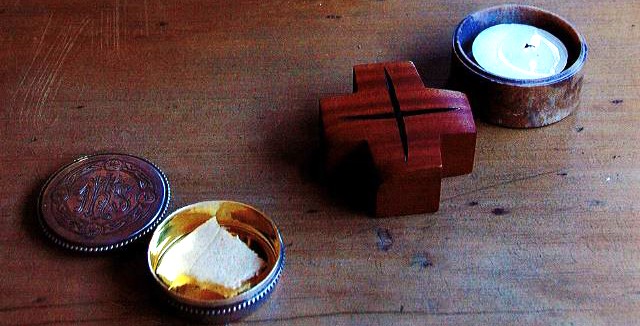Pastoral Care of the Sick
National Liturgical Council

Everyone has to deal with sickness at some time in life. It may be personal illness or that of a family member or friend. We may have to deal with short-term illness or face the final journey into everlasting life.
Jesus showed great care and concern for the sick. He visited them and touched them, bringing healing. The Gospels record many stories of his ministry to them.
Healing Hands
The Letter of James shows the early Christian community visiting their sick and laying hands on them for healing. Throughout the centuries the Church has continued this witness of Jesus and the early Church.
The Anointing of the Sick or the Last Rites, as it is sometimes called, is the most obvious sign of this care. Taking Communion to the sick in their own homes and hospitals has also been a constant part of our tradition.
Understanding Illness
In 1973 the Church revised its ritual book on the care of the sick under the title, Pastoral Care of the Sick, Rites of Anointing and Viaticum. This is a caring document firmly based in our tradition of love for the sick. It offers us a rich reflection on sickness and its role in the life of the Christian.
The members of the Christian community are called to take up the responsibility of sharing in Christ’s healing ministry, a ministry of mutual charity.
All of us are invited to grow in understanding sickness and its place in our faith life. Part of God’s plan is ‘that we should fight strenuously against all sickness and carefully seek the blessings of good health’. (PCS 3)
At the same time ’we should be prepared to fill up what is lacking in Christ’s sufferings for the salvation of the world’. (PCS 3)
At times each of us questions the purpose of suffering. We may ask “why is this happening?” It is only through Christ that we can accept the meaning of sickness and its value for our own life and for the life of the world. (cf PCS 1)
Visiting the Sick
All who are devoted in any way to caring for the sick should do all they can to help the person both physically and spiritually. This is to fulfill Christ’s command to visit the sick. In doing this we are concerned for the whole person. (PCS 4)
We do everything possible to assist the person. We visit them and do acts of kindness. We are to strengthen them with words of faith and prayer.
We celebrate the sacraments with them. The Anointing of the Sick is the special sacrament for those who are ill. The celebration of Viaticum is ‘the sacrament proper to the dying Christian’ (PCS 175). Those who are ill ‘are deprived of their rightful place in the community’ (PCS 73).
Thus the celebration of Communion of the Sick is a great responsibility. The sick remind others of the essentials in life – that we are to look forward in hope to the mystery of eternal life.
This article was originally published in ‘Healing Ministry’. © Diocese of Parramatta. 2001, 2007. Reprinted with permission.
